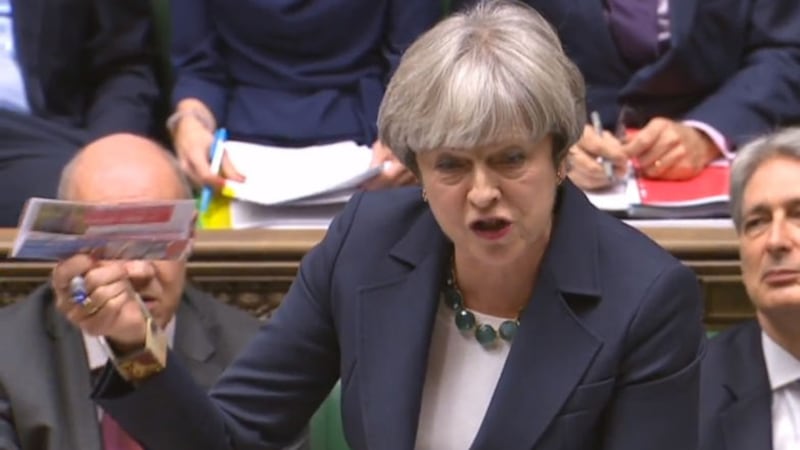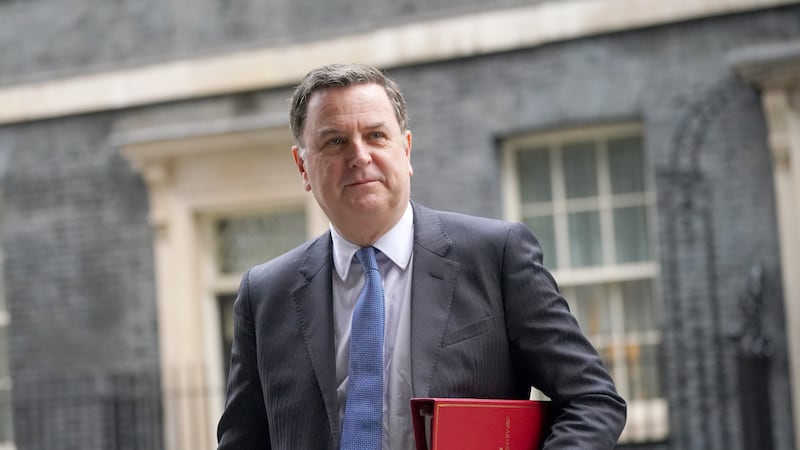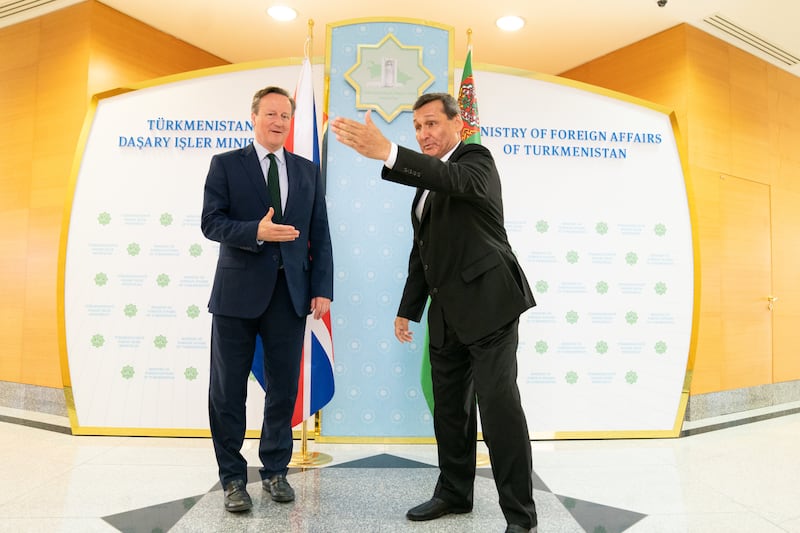Theresa May has pledged to protect the "constitutional integrity" of the UK in the negotiations to break the deadlock in the Brexit talks over the Irish border.
The British prime minister, who spoke earlier by telephone to DUP leader Arlene Foster, said her government was committed to ensuring there was no return to a "hard border" between Northern Ireland and the Republic.
However, she told MPs at Prime Minister's Questions that the issue could only be finally resolved once negotiations with the EU move onto the second phase - including talks on a free trade deal.
Her comments came after the DUP scuppered a deal on Monday to enable the talks to move the second phase, saying they could not accept the British government's proposal that there should be continued "regulatory alignment" between the North and the Republic.
Mrs Foster said that it amounted to imposing a "border in the Irish Sea" between Northern Ireland and the rest of the UK.
Mrs May said: "We will ensure that there is no hard border between Northern Ireland and the Republic.
"We will do that while we respect the constitutional integrity of the United Kingdom and while we respect the internal market and protect the internal market of the United Kingdom.
"That is the point of the second phase of the negotiations, because we aim to deliver this as part of our overall trade deal with the European Union and we can only talk about that when we get into phase two."
The British prime minister had originally been expected to speak to the DUP leader on Tuesday in an attempt to resolve their differences.
Mrs Foster has complained that her party was only shown the proposed text regarding the Irish border late on Monday morning, around the time the Prime Minister was sitting down to lunch in Brussels with European Commission president Jean-Claude Juncker.
The EU insists trade negotiations can begin only after "sufficient progress" has been made on the three key divorce issues of the Irish border, citizens' rights, and the UK's exit bill.
Dublin has warned that unless the UK provides cast-iron guarantees that the border will remain open, it will not allow the Brexit talks to expand to trade relations.
Meanwhile, Brexiteers in the British Cabinet were reported to have voiced unease about the prospect of the UK signing up to any deal which would stop it diverging from EU regulations on issues like food safety, environmental protection and workplace rights after Brexit.
Jeremy Corbyn blasted the government's Brexit approach as "a shambles" at #PMQs but the Prime Minister wasn't having any of it pic.twitter.com/Vrf8lriT4X
— Press Association (@PA) December 6, 2017
British Foreign Secretary Boris Johnson said the UK had to take back control of "our borders, of our laws and UK cash contributions".
Speaking to reporters as he arrived for a Nato summit in Brussels, Mr Johnson said: "We will come up with a solution, but the important thing is that that solution can only be discovered in the context of discussions on the end-state of the UK's relations with the rest of the EU.
"We need to get on with those negotiations now, so all the more reason to get on with stage two of the negotiations.
"What I would say is that the best way to sort it out is to get on to the second phase of the negotiations, where all these difficult issues can be properly teased out, thrashed out and solved."
He added: "I think the important thing is that what we are going to do, as the Prime Minister has repeatedly said, is we are going to take back control of our borders, of our laws and UK cash contributions. That's the way forward."
Taoiseach Leo Varadkar said the DUP did not represent everybody in Northern Ireland.
"We need to bear in mind that there are a lot of different voices in Northern Ireland; we need to listen to them all, and all parties in Northern Ireland, not just one."
He told the Dail parliament in Dublin that it was the ambition and wish of his Government to begin phase two of the UK-EU talks to address post-Brexit trade and acknowledged it was in the Republic's own interest.
"We want to move to phase two but if it is not possible to move to phase two next week then we can pick it up in the new year."
He added that he stood by the text of a draft deal "agreed" on Monday.








